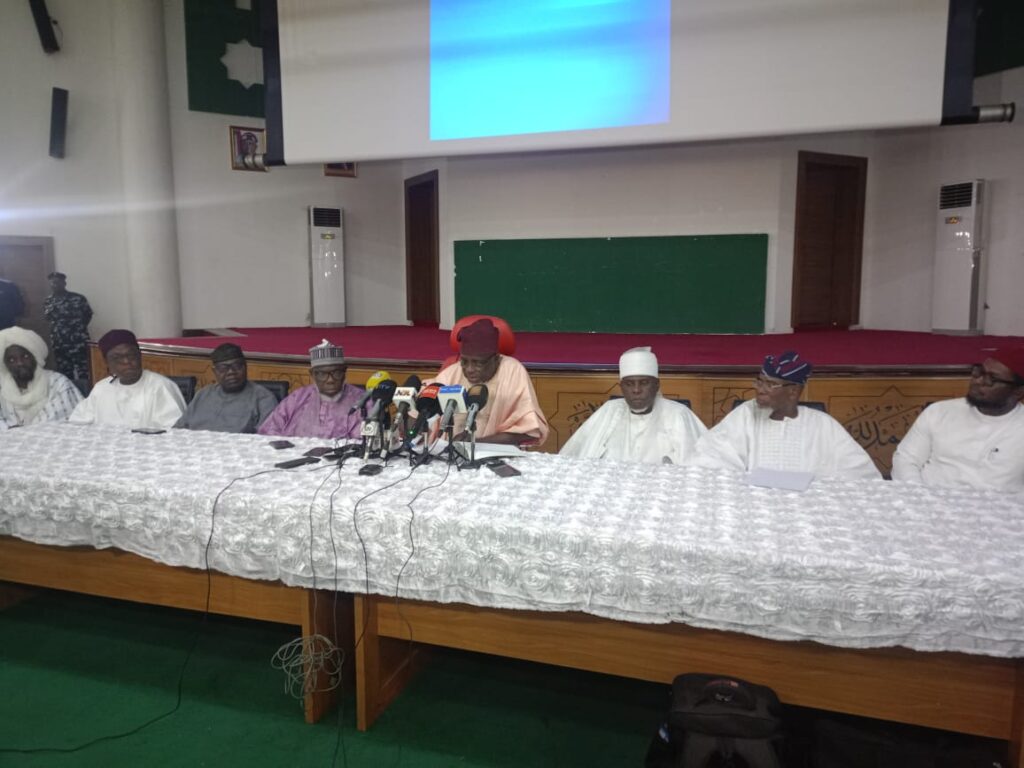The Nigerian Supreme Council for Islamic Affairs (NSCIA) has condemned what it described as “false and dangerous” claims of a Christian genocide in Nigeria, warning that the narrative is part of a coordinated foreign agenda to destabilize the country.
Addressing journalists after an expanded general-purpose committee meeting of all Islamic organizations across Nigeria on Sunday in Abuja, NSCIA Secretary General Prof. Is-haq Oloyede rejected claims by U.S. President Donald Trump that Nigeria’s insecurity is a religious conflict.
“The Nigerian Muslim community condemns the recent threats against our nation’s sovereignty. There is no Christian genocide in Nigeria. What the country faces is a complex security crisis affecting all citizens regardless of faith or ethnicity,” Oloyede said.
He explained that factors such as poverty, mass unemployment, drug abuse, porous borders, and proliferation of weapons are driving insecurity, along with criminal syndicates involved in illegal artisanal mining that create ungoverned spaces.
“This is organized crime for resources. It is not Islamic. In Sokoto, Muslims have lost thousands of lives to the same bandits who kill indiscriminately. Even the U.S. Department of State’s 2022 report on International Religious Freedom confirms that these bandits are criminals, not religious extremists,” he added.
The council criticized Trump’s designation of Nigeria as a Country of Particular Concern (CPC) for alleged religious persecution, calling it an “act of political cynicism”. It accused some U.S. politicians, evangelical groups, and Nigerian separatists of spreading misleading claims to influence American domestic politics and undermine Nigeria’s unity.
“The re-imposition of the CPC designation is not based on new facts. It is a political tool wielded by lobbyists and cheapens the concept of religious freedom,” Oloyede said.
NSCIA stressed that violence in Nigeria stems from poverty, climate change, organized crime, and weak governance, not religion. Both Muslims and Christians have been victims of terrorism, banditry, and communal clashes.
“These terrorists kill both Muslims and Christians. They destroy mosques and churches alike. They are not Islamic representatives; they are our mortal enemies,” the Council said.
It also linked the genocide narrative to geopolitical factors, claiming it gained momentum after Nigeria reaffirmed its support for a two-state solution and solidarity with the Palestinian people at the UN General Assembly, arguing it serves to distract from atrocities in Gaza.
“This is not an Islamic invasion. The crisis reflects climate-driven migration and competition over land and water, not religious extremism,” NSCIA concluded.















